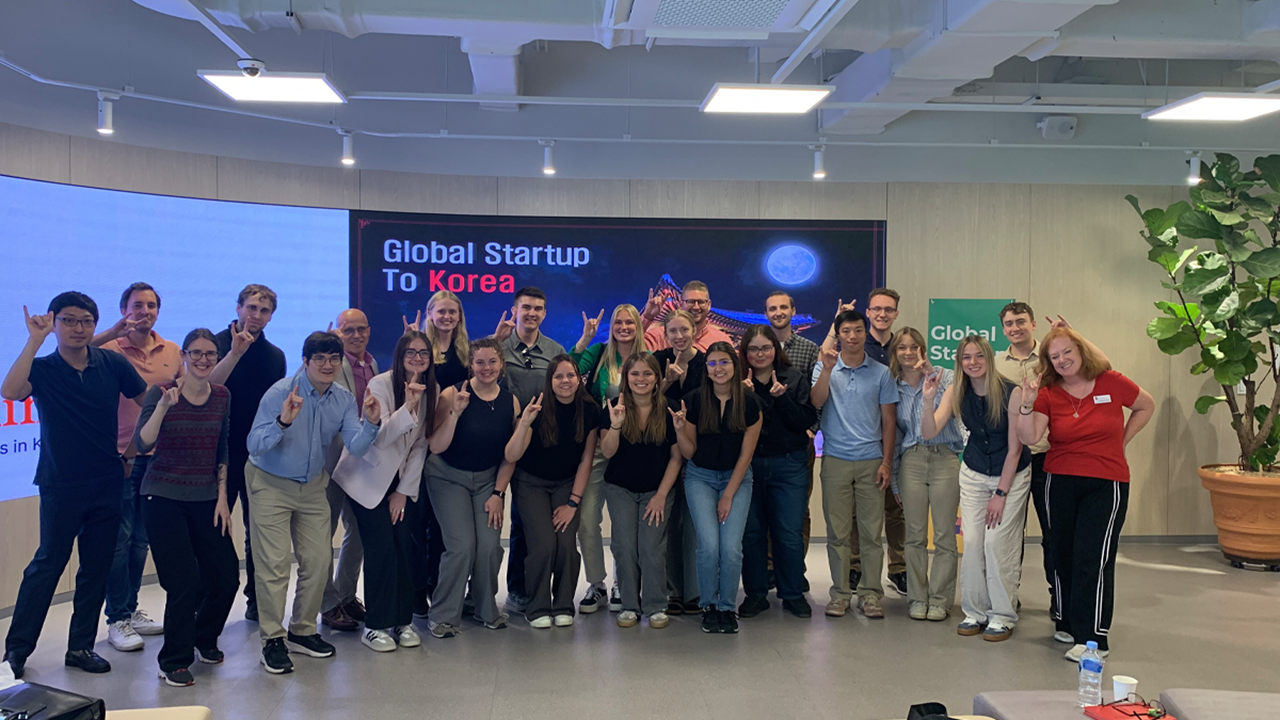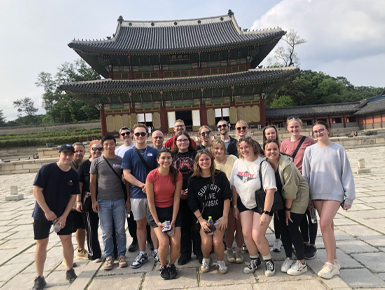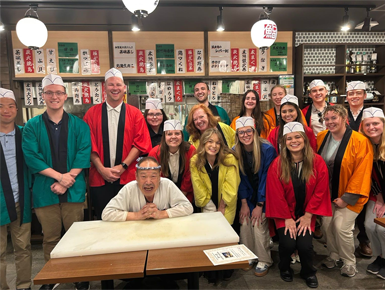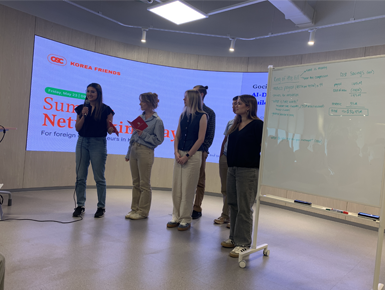USD Students Explore Business and Culture on Global Immersion Trip to Japan and South Korea

Seventeen students took an eight-day trip to deepen their understanding of international business and culture, leaving lasting impressions on everyone involved.
“Students can only learn so much in a classroom,” said Kyle Schoenfelder, senior academic advisor in the Beacom School of Business and co-leader of the Global Immersion trip. “Being in these countries allowed students to see and feel how business is conducted in real time and adapt to new cultures and customs.”
The trip was made possible by a generous gift from Matthew Hanson ’94, who, inspired by his own international experience as a Beacom School of Business student, funded scholarships for each participant to reduce financial barriers and launched a matching challenge during Unite for USD to further support the opportunity.
With four days spent in Tokyo’s bustling streets, the trip then shifted to Seoul for four more days. In both locations, students engaged directly with local businesses and entrepreneurs, gaining insights into international trade, understanding the impact of political systems on businesses and witnessing the impact of culture on management and operations in an international setting.
The itinerary included places like the Tsukiji Fish Market, Vector (a marketing firm), Ichido (a sparkling sake company), Red House Studios, the Global Startup Center in Seoul and the Seoul Kimchi Academy, where students had the opportunity to make their own kimchi.
Elyse Whittemore, an MBA student with concentrations in operations and supply chain management, joined the Global Immersion program after her friends attended a previous trip to Taiwan, Singapore and Malaysia. Inspired by their experiences, she participated in this year’s journey to Japan and South Korea, which she says significantly enriched her academic perspective.
“It’s not every day you can travel to a country and walk into a business to speak with a vice president or meet with top-level executives,” said Whittemore. “We studied startups in my classes, so it was eye-opening to compare those lessons to what we saw in Japan and South Korea and connect theory with real-world business practices.”
Her experience was echoed by others on the trip, with some students taking bold next steps as a direct result of the experience. One MBA student was inspired to apply to the Global Startup Center after meeting its entrepreneurs.
Building on this momentum, Elizabeth Manser Payne, DBA, associate professor in the Beacom School of Business and co-leader of the Global Immersion trip, is establishing a partnership with a Tokyo-based CEO for her 2026 spring marketing research class.
“This trip is the very definition of experiential learning,” said Manser Payne. “It takes classroom theory and puts it in the context of bustling cities, cross-cultural business conversations and real-world problem solving. It’s USD’s mission statement playing out on the streets of Tokyo and Seoul.”
To prepare students for the trip, USD faculty and staff provided cultural, business, health and safety briefings before departure. They also hosted a traditional meal to help students better understand dining etiquette and customs.
All that preparation, according to Schoenfelder, enabled the students to grow exponentially on a personal, professional and academic level.
“For some students, this trip was the first time they flew on an airplane or even used public transportation. For others, navigating the foreign countries in a language they didn’t know pushed them to rely on one another,” said Schoenfelder. “It’s not just a stamp on a passport. This experience helped transform students’ ability to think and act strategically.”
The Global Immersion program offers students an opportunity to travel, in addition to a life-changing experience that builds confidence, prepares them for an increasingly global world and gives them a competitive edge.
“It’s one thing to talk about global mindsets in class, it’s another to live them. This trip provided students with an opportunity to develop cultural agility—adapting to new settings with curiosity instead of judgement,” said Manser Payne. “Their growth in knowledge, confidence and cultural empathy will last long after the trip and inspire a lifelong desire to explore the world.”






